Act I
The Emperor of the South-East Islands is married to the daughter of a fairy that he captured while out hunting; once he injured a gazelle which transformed into the beautiful young woman.
Having become the Emperor’s wife, she did not, however, become human. She casts no shadow and so cannot become a mother. There is a connection between having a shadow and motherhood, as the former is an Omen and Destiny. The Nurse is pleased at this as she despises all that is human. Keikobad, ruler of the Spirit Realm and the Empress’ father, sends his envoy who holds talks with the Nurse. A falcon flies to the Empress, having been on a hunt with the Emperor when he shot at a while gazelle. The falcon informs her that ‘‘Time will soon run out, woman will not cast a shadow – and thus the Emperor will be turned to stone.’’ The Empress understands the allusion: she has gone beyond the confines of the demonic world, but the Emperor’s egotistical love has not surrounded her with humanity. She is between two worlds: one that does not wish to let her go, and one that will not accept her. And this curse will exert its power not over her, but rather over him. The Empress wishes to acquire a shadow whatever the cost. She is assisted in this by the Nurse, who proposes buying a person’s shadow. The Empress and the Nurse set off and come to the family of Barak the Dyer.
Barak is no longer young, but he is hale and hearty, as an ox. He works for the sake of his three brothers and his Wife, who is young and attractive but dissatisfied with her life with Barak. Children would be a divine blessing for him, though this marriage, too, has produced no children. The Empress and the Nurse ask the servant to direct them to the Dyer’s Wife.
The Nurse offers the Dyer’s Wife fine clothes and a lover in exchange for her surrendering her shadow and her fertility. With magic spells and gestures, the old procuress ensnares the young woman and the Dyer’s Wife concludes the bargain. The Empress barely understands this tainted covenant, thanks to which she will acquire her heart’s desire. But the deal is done, the guests vanish suddenly and the Dyer’s Wife is once more left alone. The voices of her unborn children can be heard coming from the pan where five fish are being fried, lamenting mournfully from the darkness. The unsuspecting Dyer returns home. Barak and his Wife each go to their separate beds.
Act II
The trials begin. The Nurse tempts the young woman with a spectre of a languishing and ardent young boy. As soon as the Dyer leaves, the youth appears in his house. Barak doesn’t know what is going on, but his kind but foolish heart becomes heavier and heavier. He feels that something is amiss, as if someone is calling on him to help. The Empress is involved in this evil scheme. At night, in fear-filled dreams she sees her husband walking through an empty forest, alone, eaten up by egotistical suspicions. His heart has already turned to stone. She awakes from her prophetic dream, but her days are more dangerous than her nights. There is no room for a creature from the Spirit Realm in the world of men. Gradually the Empress overcomes her fears and begins to sense her guilt before Barak. The third night falls: The Nurse, in order to complete the pact, calls on devilish forces for help. Heavy mists descend all around. A cry of horror emerges from the mouths of Barak’s brothers, while the lips of Barak’s Wife produce insane, wild words. She accuses herself of something she has not yet done – of marital infidelity – and says that she has sold her shadow and spurned her unborn children. The brothers light a fire and become convinced of what has been said: the young woman stands before them as a witch, casting no shadow. The Nurse rejoices – the pact has come into force. One has surrendered her shadow; the other must take it for herself. At this terrible and decisive moment, Barak seems to grow taller; his lips, which to this point have uttered no wicked word, pronounce the death penalty on his Wife. A glittering sword appears in his hands. At the sight of the sword, the Nurse understands that higher forces have entered the game, ones with which she cannot compete. Instead of grabbing the shadow, the Empress drags the Nurse away to avoid being spattered in human blood. The Wife falls at Barak’s feet, in supplication and in mad frenzy holds the sword above her own self. The fates are woven together and voices drown each other out – everything around is suddenly under some magic power. The Earth rotates and swallows man and wife; Barak’s house crashes to the ground. A huge swell of water rises from the depths. The Nurse, shielding the Empress with her cloak, seats her in a boat that has magically appeared.
Act III
The first trial has been completed, and those who have completed it set out for The Spirit Realm. The boat with the Empress and the Nurse arrives at the gates of the Temple. She knows: she is being called to judgement. In the depths, utterly unaware of one another, Barak and his Wife are struggling in their confinement. The voice of one of the spirits calls them upwards. They rise and think of one another with tenderness: he forgiving her, and she begging forgiveness, humbly and, for the first time, lovingly. They rise above, trying to find each other. Here they meet the Nurse, standing before the closed gates of the Temple. The messenger of the spirits guards the entrance from her. She is infuriated. The Empress is standing in the depths of the Temple and awaits the court. But who is it that will judge her? Is it the King of Spirits, her stern father? A curtain screens his face. The Empress’ courageous supplication goes unanswered. There is only the gentle gurgling of the water of the Golden Source, the Source of Life.
‘‘Drink,’’ says a voice, ‘‘Drink, and the Wife’s shadow will be yours.’’ The Empress hears the voices of the separated man and wife and steps back without having let her lips touch the Golden Source. The waters recede. The Emperor sits upon a stone throne, unmoving, turned to stone. It is only in his eyes, it would appear, that life still lingers. The Source of Life again begins to ring out at the statue’s feet. Sweet voices from above can be heard: ‘‘Say ‘I want it’ and the woman’s shadow will be yours, it will rise, come to life and go with you.’’ The Empress freezes to the spot, battling with her own self. The barely heard words ‘‘I don’t want it!’’ at last come from her lips. She is victorious, as the mother before the throne of Solomon was victorious, prepared to lose her child that he might live. She is victorious for her own self and for the sake of one who would, without her self-sacrifice, otherwise remain petrified forever. And for the sake of two others who, having suffered so much, must rise upwards. A distinct shadow falls on the floor of the Temple. The voices of the unborn children can be heard rejoicing.
The opera's story is set in the mythical empire of the Southeastern Islands and involves five principal characters: the Emperor (tenor), the Empress (soprano), her Nurse (mezzo-soprano), Barak, a lowly dyer (bass-baritone), and the Dyer's Wife (dramatic soprano). A sixth character, Keikobad, King of the Spirit Realm and father to the Empress, sets the plot in motion, but never appears on stage. The Empress is half human: she was captured by the Emperor in the form of a gazelle. She assumed human shape and he married her, but she has no shadow. This symbolizes her inability to bear children. Keikobad has decreed that unless the Empress gains a shadow before the end of the twelfth moon, she will be reclaimed by her father and the Emperor will turn to stone.
Act 1
Scene 1
It is dawn, outside the bedchambers of the Emperor and Empress. The Messenger of Keikobad arrives, and tells the Empress's nurse that the Empress must acquire a shadow within three days, or will be forcibly returned to his realm, and the Emperor turned to stone. The Nurse is excited about the prospect of returning to the spirit world, since she hates humans and having to dwell with them.
The Messenger leaves and the Emperor emerges from his bedchamber. He departs on a three-day hunting trip, seeking his favorite falcon, which he drove away for attacking a gazelle that later turned into the Empress. He leaves his wife to the Nurse's care. The Empress emerges from her chamber and reminisces about times when she had the ability to turn into any creature she wanted.
It is revealed that after being attacked by the red falcon that the Emperor is seeking, she lost a talisman that gave transformation powers, and on which was inscribed a curse that foresaw the fate she and the Emperor are about to face if she does not acquire a shadow. The red falcon appears and warns the Empress that the curse is about to be fulfilled. The Empress begs the Nurse to help her get a shadow. The Nurse, who is steeped in magic, suggests descending to the mortal world and finding a woman who will sell her shadow to the Empress.
Scene 2
Barak, a dyer, shares his hut with his Wife and his three brothers: the One-Eyed Man, the One-Armed Man, and the Hunchback. The three brothers fight about a stolen item and are separated by the Wife, who throws a bucket of water at them. The brothers-in-law then argue with the Wife. Barak enters and stops the argument. The Wife wants to have her in-laws thrown out, but her husband refuses.
The Dyer desires children, but his Wife fears the responsibility and has secretly sworn not to have any. The Dyer and his brothers leave, and the Empress and the Nurse arrive in disguise. The Wife wants them out of her house but the Nurse conjures up visions of luxury and promises them to the Wife in return for her shadow. The Wife agrees to deny her husband for three days during which the Nurse and the Empress will live at the Dyer's hut as poor relatives who have come to work as servants.
Barak approaches and the Wife is worried that dinner is not ready, the Nurse once more uses her magic to have everything ready, including the splitting of Barak's bed in two. The Nurse and Empress disappear, and the Wife is greatly upset by the offstage Voices of Unborn Children lamenting, which emerge from the fish that are cooking on the fire. The Dyer returns to find he is barred from his marital bed. The Wife curtly informs him of the impending stay of her "cousins" and goes off to her separate bed. From outside the Town Watchmen are heard singing of the importance of conjugal love. Barak sighs and lies down to sleep on the floor.
Act 2
Scene 1
The Empress, acting as a servant, helps the Dyer leave for work, but is troubled by her role, because Barak is very kind to her. The Nurse conjures up the image of a handsome youth by bringing a broom to life, which tempts the Dyer's Wife. The Dyer returns with his hungry brothers and beggar children. He has had a magnificent day at the market, selling all his goods, and has invited everyone to celebrate. However, his Wife manages to ruin the celebration.
Scene 2
The Emperor is led to his hunting lodge in the forest by the red falcon. He sees the Empress and Nurse surreptitiously enter the lodge, and is suspicious. When he comes closer, he smells a human odor trailing the Empress. Thinking she has betrayed him, he resolves to kill her. He first thinks of using an arrow, and then his sword, and then his bare hands. Finally he realizes he can't do it. He resolves to seek out some isolated ravine to be alone with his misery.
Scene 3
At the Dyer's house, the Dyer is drugged into sleep by the Nurse. The Nurse again conjures up the young man for the Wife, who grows frightened and rouses the Dyer. Barak is surprised to learn that there is a man in his house but then is quickly turned upon by his Wife, who shouts at him, then leaves for the city, leaving her confused husband. Left alone with Barak, the Empress feels more guilty than before.
Scene 4
The Empress goes to sleep at the hunting lodge, but in her sleep she is further troubled by her crime and by the possible fate of the Emperor. In a dream, she sees the Emperor enter her father's realm. Unseen choruses chant the curse of the talisman. Awakening, she is overcome with guilt and remorse.
Scene 5
The next day, the Wife announces that she has sold her shadow. When a fire reveals that she has no shadow, the enraged Barak is ready to kill her. The Empress cries out that she no longer wants the shadow. A sword appears in the Dyer's hand. His brothers restrain him as the Wife declares her remorse and urges Barak to kill her. An earthquake splits the ground and Barak and his wife are swallowed into the earth. The brothers flee, and the Nurse, recognizing Keikobad's hand, spirits the Empress away.
Act 3
Scene 1
In a grotto beneath the realm of Keikobad, the wife and the Dyer are seen in separate chambers, unaware of the other's presence. The Wife is haunted by the Voices of Unborn Children. She protests that she loves the Dyer, who regrets his attempted violence. A voice directs them up separate staircases.
Scene 2
The Empress and Nurse arrive before Keikobad's Temple. The Nurse tries to convince the Empress to escape but she remembers the doors from her dream and knows that her father is waiting for her on the other side. She dismisses the Nurse and enters. The Nurse foretells terrible tortures awaiting the Empress and misleads the Wife and Barak, who are looking for each other, she to die at her husband's hand, he to forgive her and hold her in his arms. Keikobad's Messenger condemns the Nurse to wander the mortal world.
Scene 3
Inside the Temple, the Empress speaks to Keikobad, asking for forgiveness and to find her place amongst those who cast shadows. Keikobad does not answer but shows the Emperor already almost petrified. The Fountain of Life springs up before the Empress, and a temple guardian urges her to drink from it and claim the Wife's shadow for herself. But the Dyer and the Wife are heard offstage, and the Empress refuses to steal their future happiness and become human by robbing humanity from someone else: "Ich will nicht!" ("I will not!"). This act of renunciation frees her: she receives a shadow, and the Emperor is restored to natural form
Scene 4
The scene changes to a beautiful landscape. Barak and his Wife are reunited and she regains her own shadow. Both couples sing of their humanity and praise their Unborn Children.


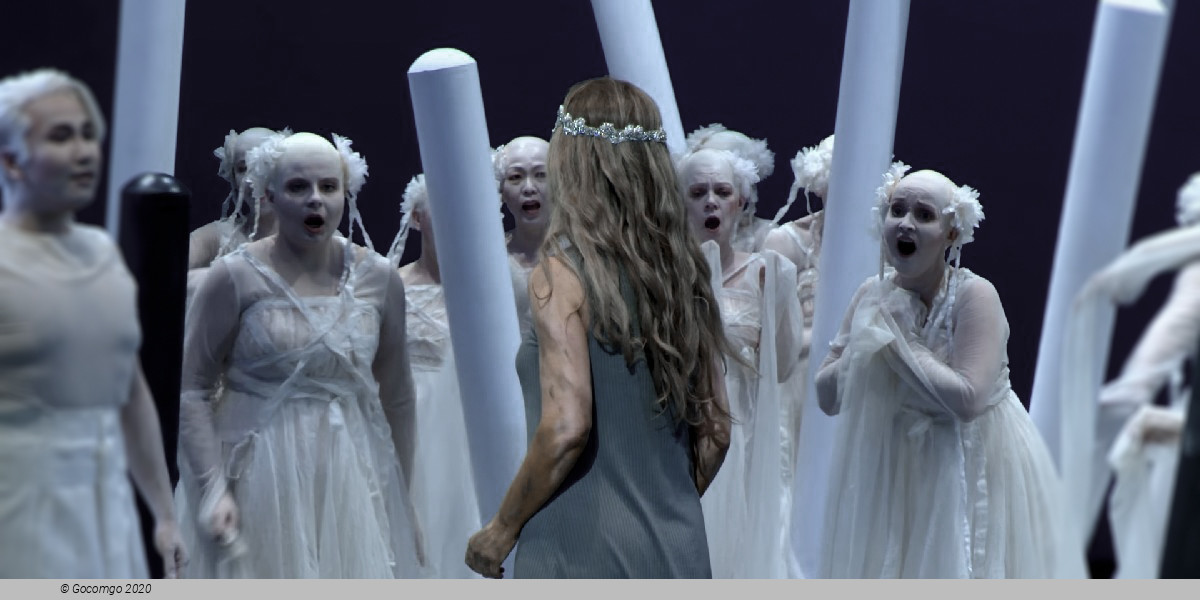
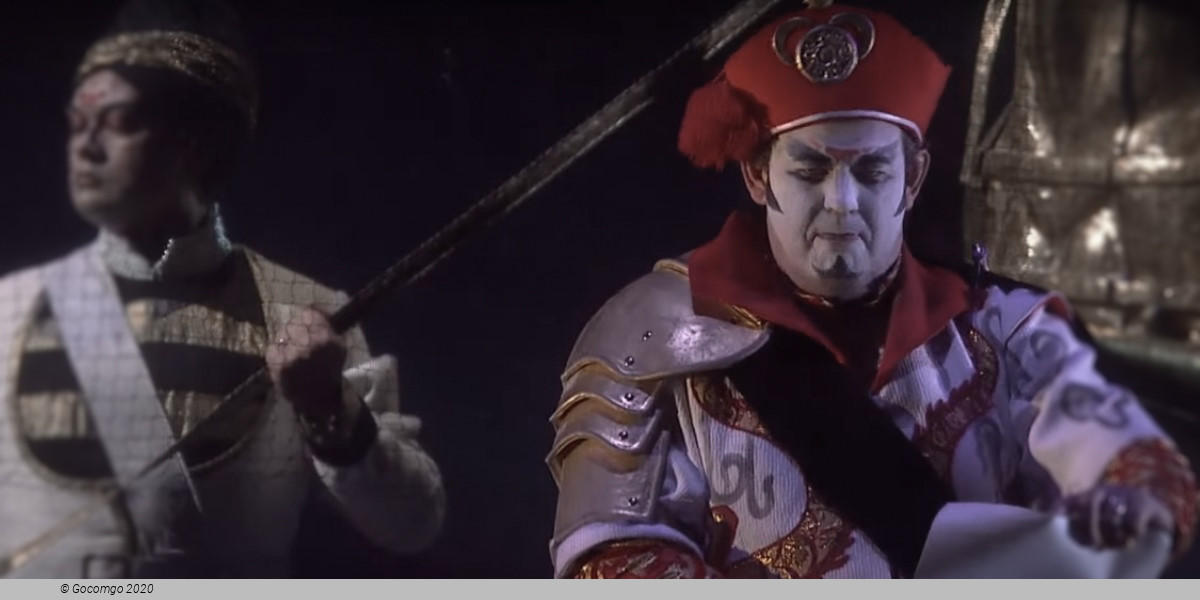
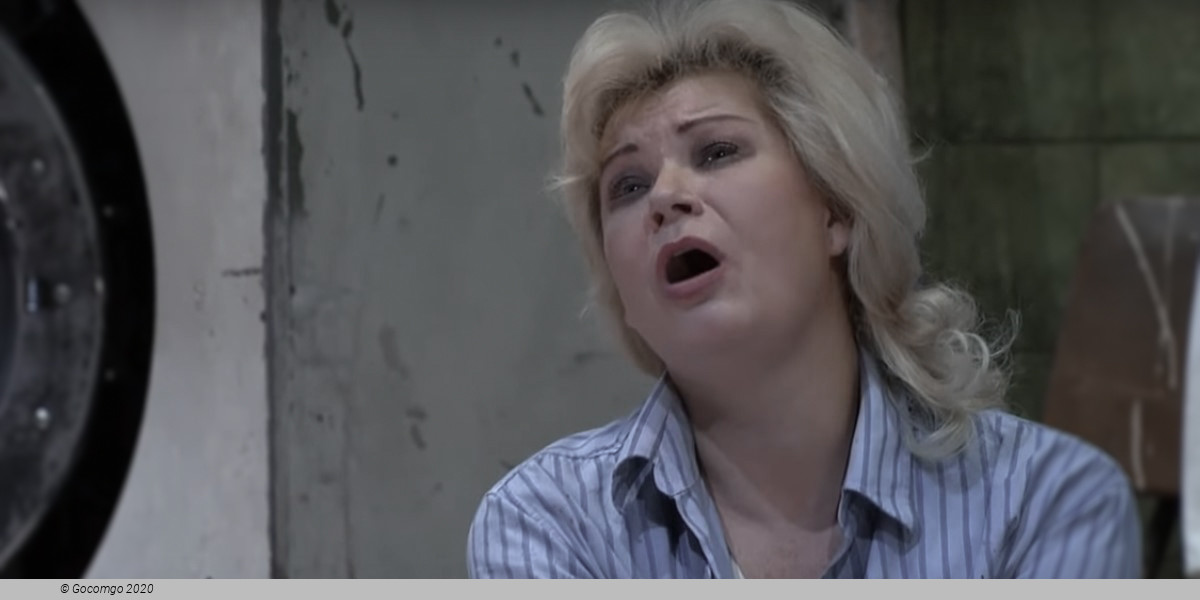
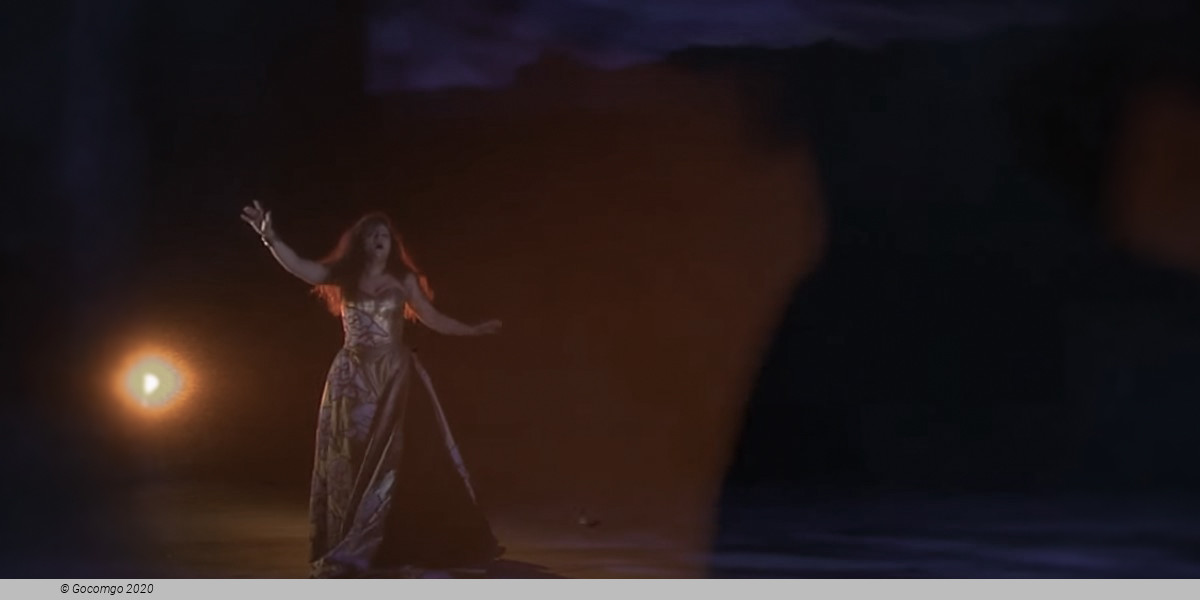
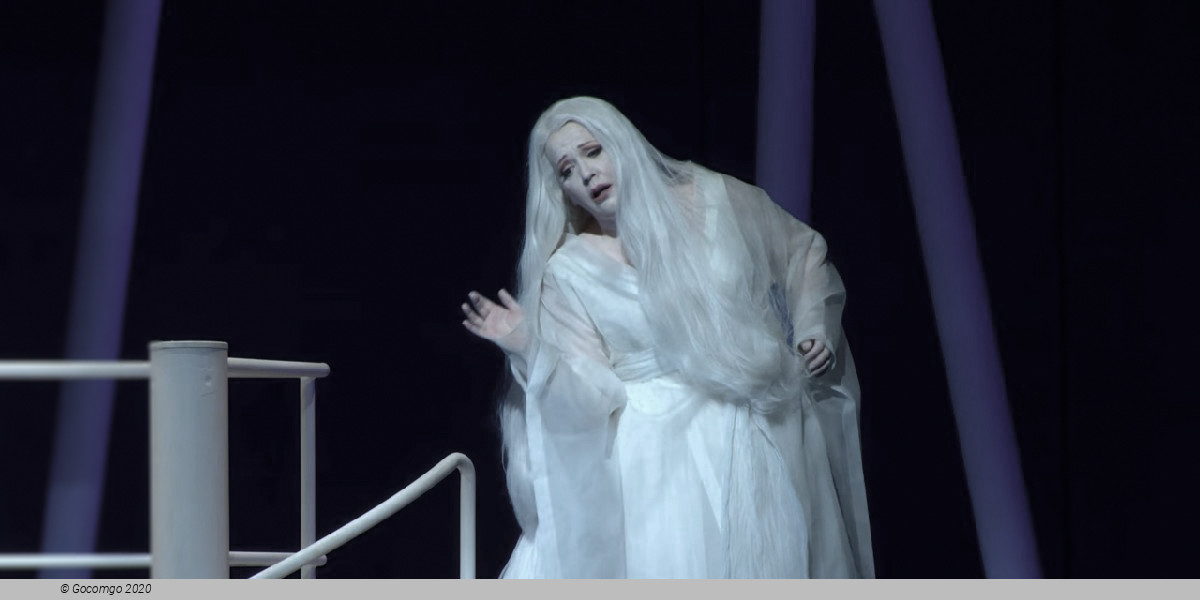
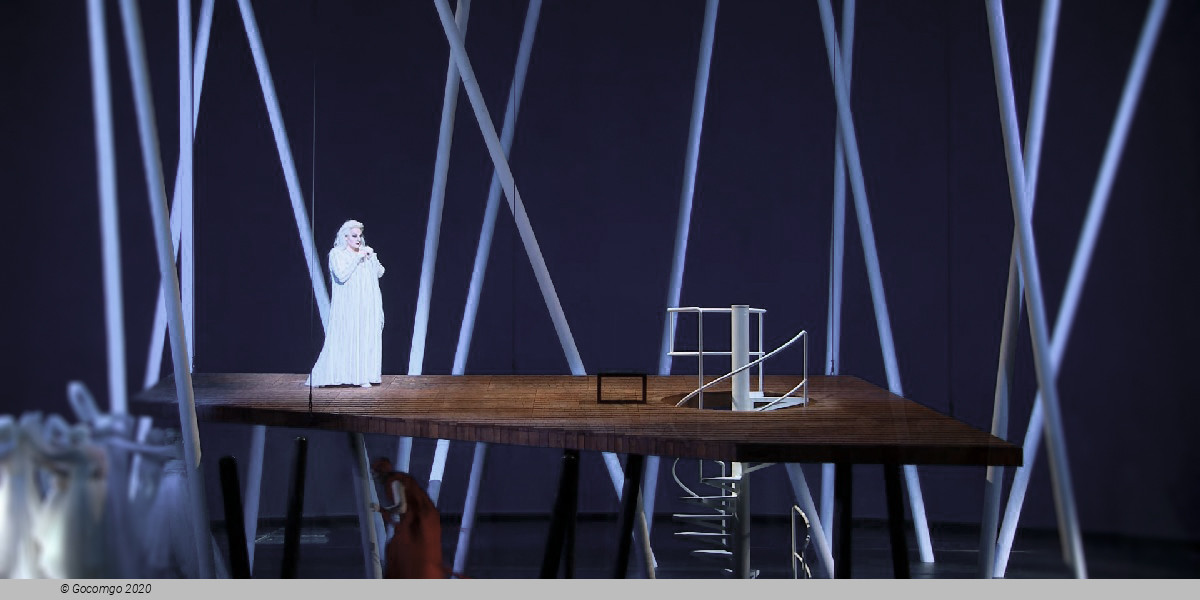
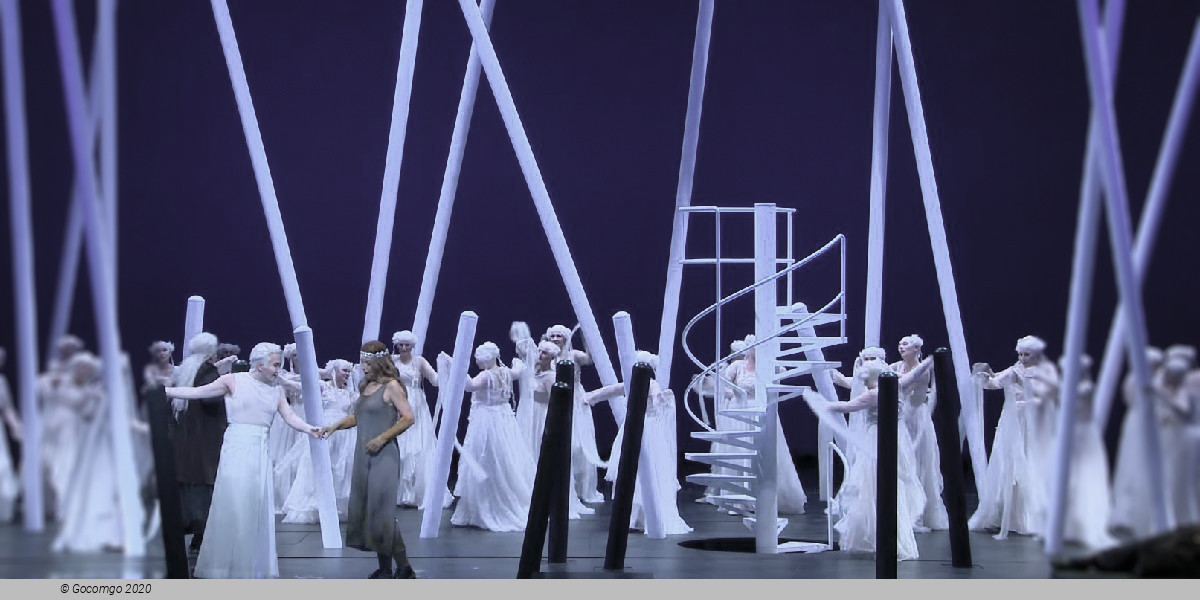
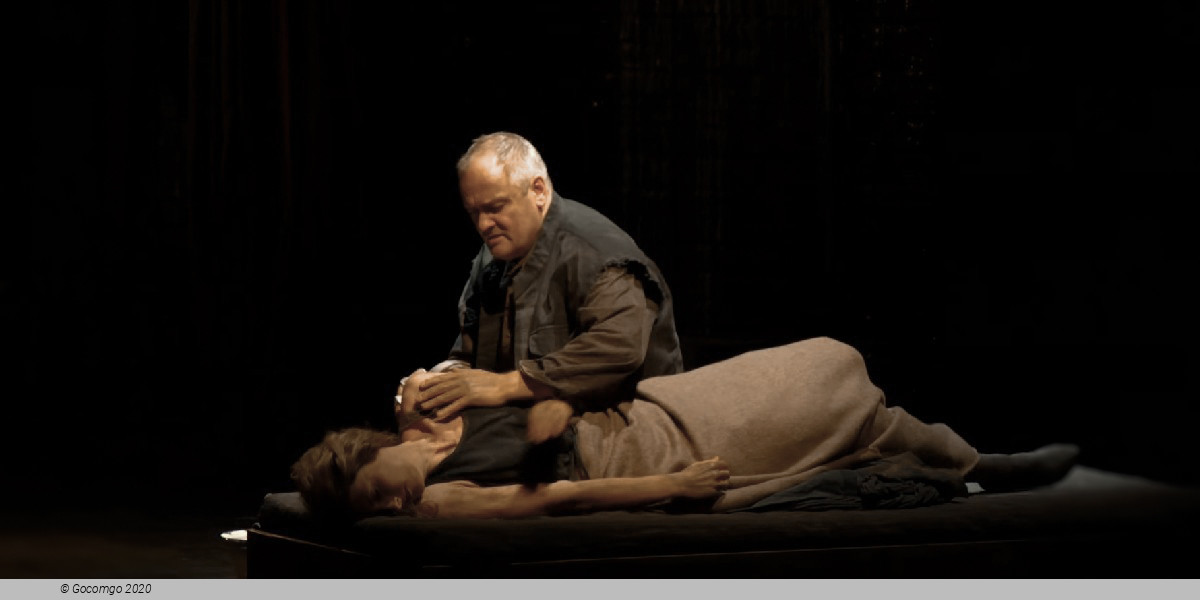
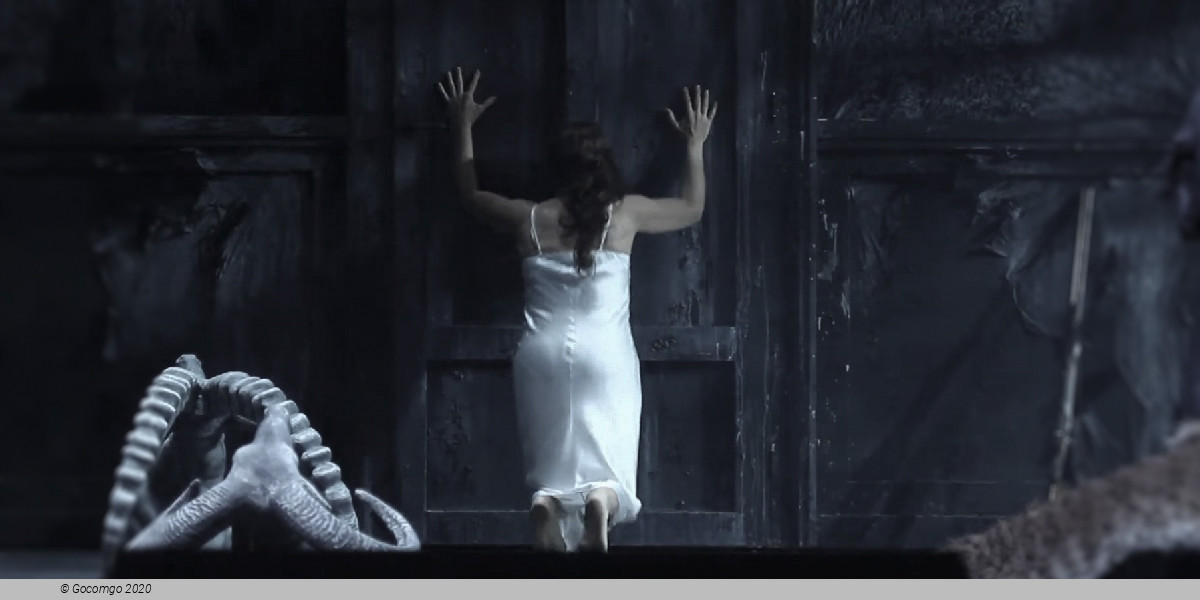
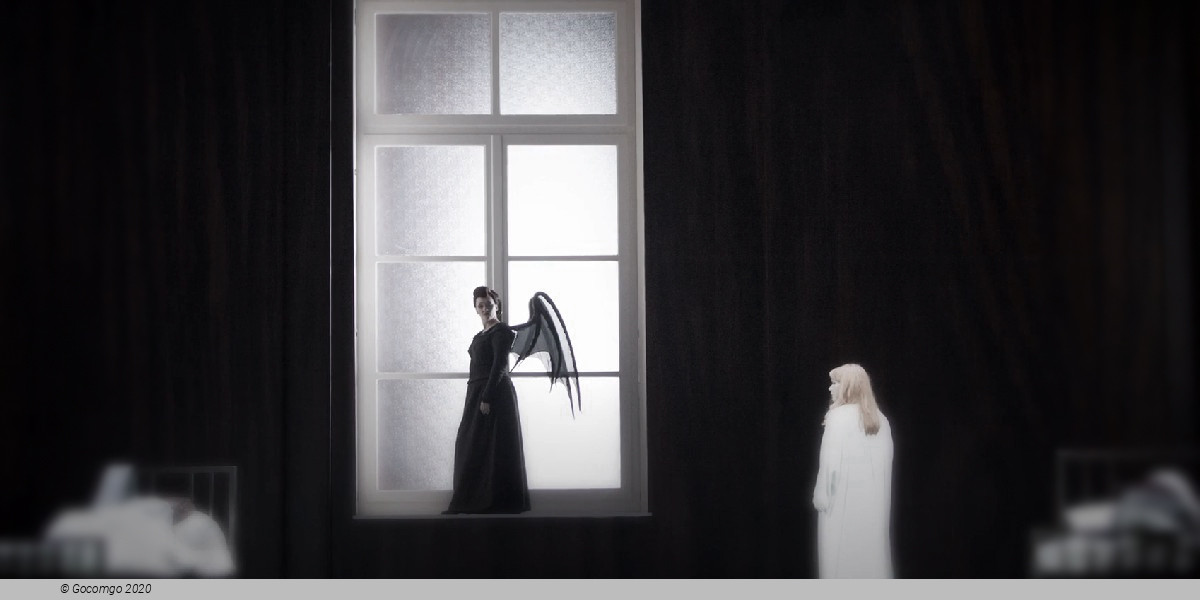
 1 Theatre Square
1 Theatre Square